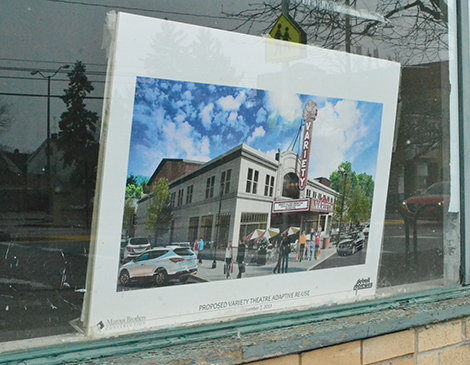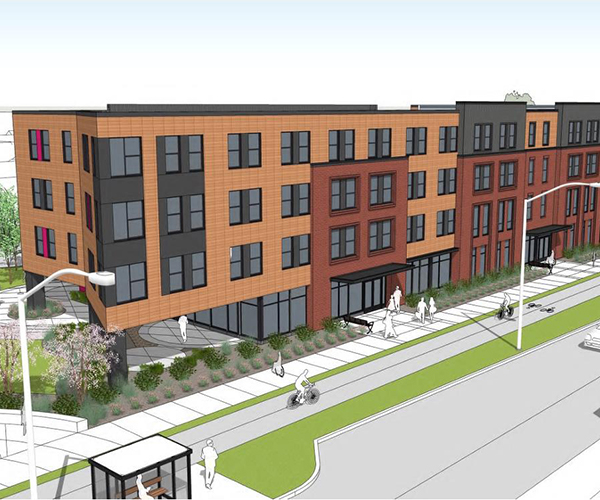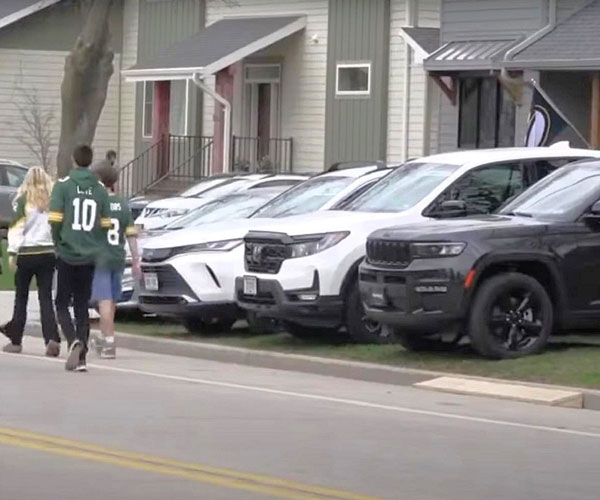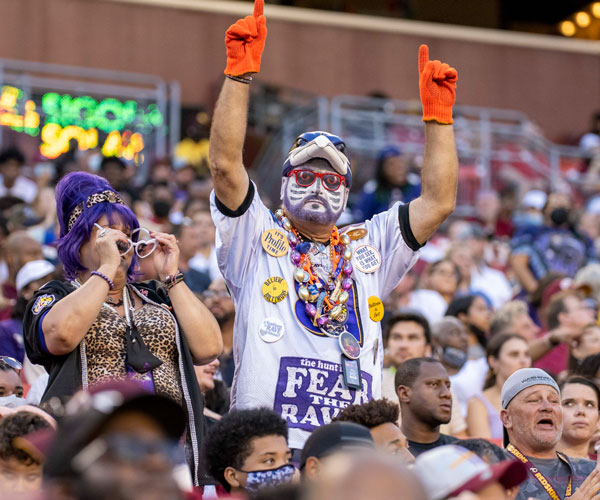Nearly a year after Kelly Flamos closed on her deal to purchase the Variety Theater, the curtains remain closed on her vision to reinvent one of Cleveland’s historic landmarks.
Constructed in 1927, the theater’s interior is crumbling. Decades removed from a fabled Motorhead concert so loud it cracked part of the ballroom ceiling in 1984, large swaths of fallen plaster and debris sit piled across the aisles of the main floor and upper balcony; the building’s main entry remains shuttered to the bustle at the corner of Loraine Avenue and West 118th Street.
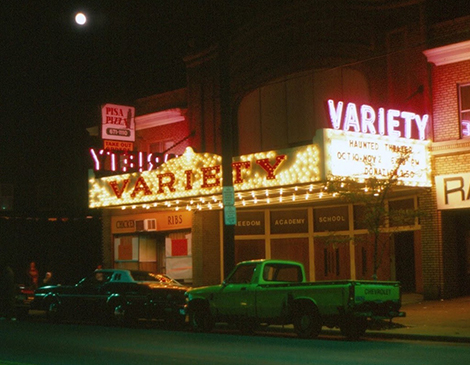
Like the groups before Flamos, she faces a harsh reality: little can be done before untangling the web of necessary funding.
“I thought that my big challenge was going to be running the theater … getting people to come to the theater and keeping it going,” Flamos says. “Over the past year, I’ve realized that there are finish lines before I even get to that challenge.”
Flamos, who has worked closely with the real estate and property management firm MCM Co., says nothing can be done until all pieces of the project’s funding are in place. This entails grants and other forms of nontraditional funding at the city, county and state level, including a $2.5 million grant from Cuyahoga County first secured by former Cleveland city councilwoman Dona Brady.
Brady worked closely with the theater’s last ownership group, the Friends of the Historic Variety Theater, a nonprofit group that took possession of the building in 2009. The organization and Brady were instrumental in securing funding for the theater’s restored marquee sign, an updated electrical system and an adjacent, city-funded parking lot.
Today, the linchpin for Flamos’ operation rests on historic tax credits at the state and federal levels. As of this spring, only the federal credit is secured, after the theater’s application for the Ohio Historic Preservation Tax Credit Program last September yielded no award.
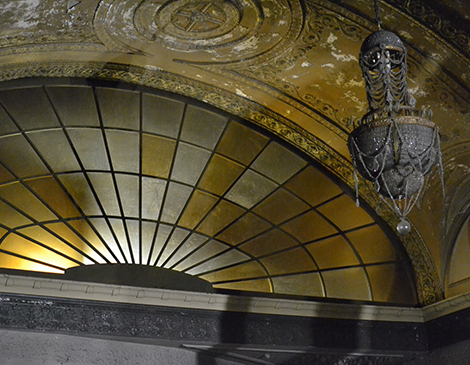
Melissa Ferchill, the president of MCM, says securing the tax credit is uniquely tough for theaters, due to the greater expense to rehabilitate the space. Even so, the guidelines for the program note specific consideration is given to historic theaters that are “intended to be used as a theater after renovation is complete.”
“There is supposed to be some preference to theaters, but we haven’t quite seen it in the way they score the project,” Ferchill says.
When full funding is in place, Flamos aspires for Variety to anchor Westown, as it was during its heyday, with the added benefit of providing room for affordable housing and dining. Included in the block are 12 studio apartment units, nine potential retail storefronts and a restaurant space.
Flamos brings extensive experience from her time as co-owner of Lakewood’s Mahall’s 20 Lanes. Flamos intends for the Variety to primarily be a live music venue, with the power to draw people who may not otherwise be familiar with the neighborhood.
Danny Kelly, the recently appointed Cleveland city councilman of Ward 11, believes the theater fills a void in his ward.
“A lot of the [enthusiasm] has waned because this has been on for so long,” says Kelly, “but [Flamos] put up a lot of real money to do this. I don’t think people realize you got somebody who’s taken a shot on a dream.”
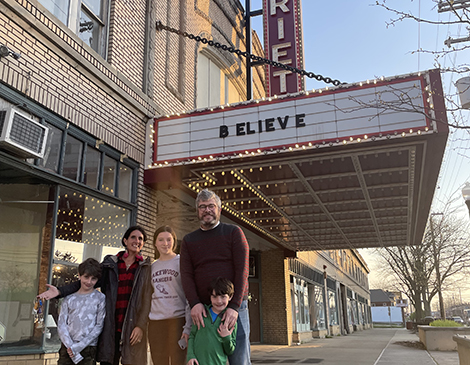
Get ahead of the weekend by signing up for our free weekly “In the CLE” newsletter — your guide to fun throughout The Land. Arriving in your inbox every Wednesday, this weekend to-do list fills you in on everything from concerts to museum exhibits — and more. Click here to subscribe.

